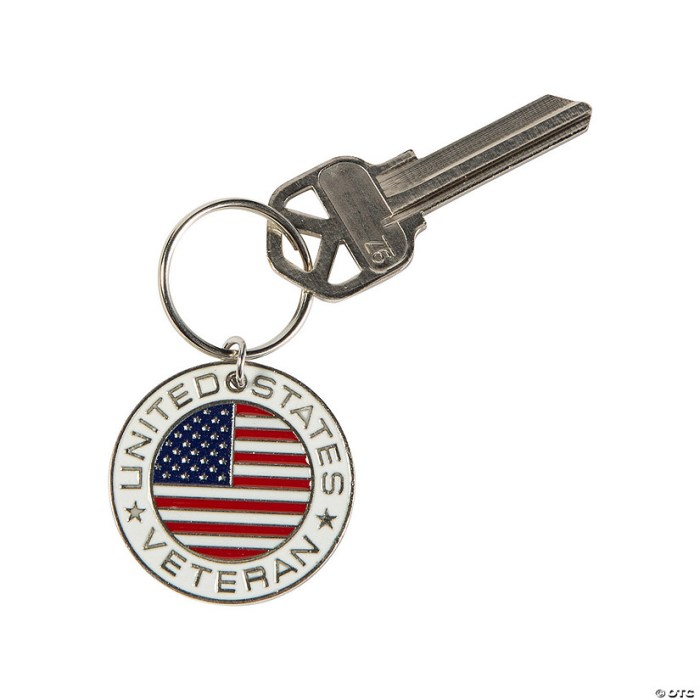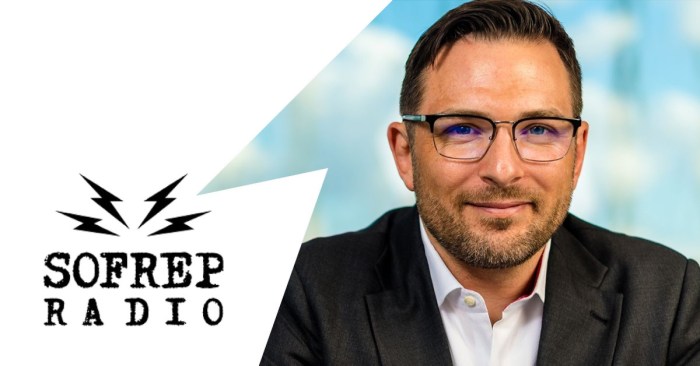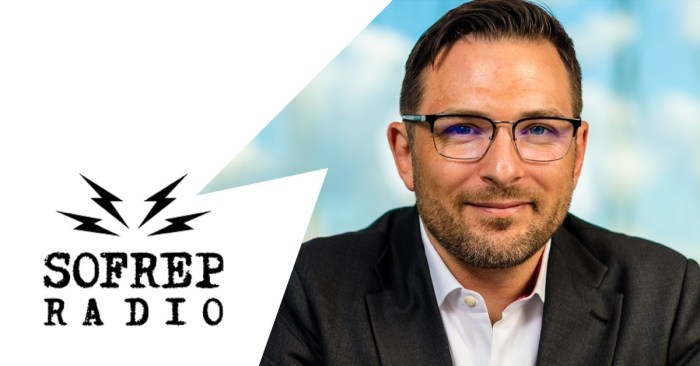White House taps special ops vet key latin america post sources say, igniting speculation about a potential shift in US foreign policy. This appointment raises crucial questions about the qualifications and suitability of military personnel in diplomatic roles. Will this veteran’s unique background prove beneficial or present unforeseen challenges in a complex region? The decision certainly marks a notable departure from traditional approaches, and observers are eager to see how it unfolds.
This appointment seems to indicate a proactive approach to Latin American relations, potentially driven by a desire for a more robust security presence in the region. The veteran’s background in special operations could offer unique insights and problem-solving abilities, but it also carries the risk of a less nuanced approach to diplomacy. The specific responsibilities and the geographical area of influence will be key to understanding the potential impact of this appointment.
Background of the Appointment
The White House’s recent trend of appointing special operations veterans to Latin American posts reflects a growing reliance on their unique skills and experience in complex geopolitical environments. This practice, while not entirely novel, has seen a noticeable increase in recent years, driven by the perceived need for specialized expertise in addressing security challenges. This approach often prioritizes a more direct, hands-on approach to problem-solving, compared to traditional diplomatic channels.This appointment strategy leverages the specific training and operational experience of these veterans, which often includes extensive language proficiency, cultural awareness, and intimate understanding of military tactics and counter-insurgency operations.
So, the White House is reportedly bringing in a special ops vet for a key Latin America post, according to sources. Meanwhile, it’s concerning to hear about the Indian police arresting four people in connection with a cricket fan stampede, highlighting the tragic consequences of such events. Hopefully, this new Latin America appointment will bring some stability and positive change to the region, though.
This approach, while potentially effective in certain contexts, also raises concerns about the potential for a militarized approach to diplomacy and the potential for unintended consequences.
Word on the street is that the White House has appointed a special ops vet to a key Latin America post, according to sources. Meanwhile, it’s interesting to see how the US appeals court is siding with Moderna’s COVID patent claims, as this could potentially impact future vaccine development. Regardless, this new appointment to Latin America will surely be a busy one, given the current geopolitical climate.
Historical Context
Historically, the US government has occasionally employed special operations veterans in diplomatic and security roles, often in specific, high-risk regions. These appointments were often made in response to specific crises or perceived threats, emphasizing the need for tailored solutions. This trend highlights a growing recognition of the unique skills these veterans possess, beyond the typical diplomatic or intelligence community backgrounds.
Typical Career Paths and Qualifications
Special operations veterans often transition to government service through various pathways. Some enter through intelligence agencies, while others join the State Department or other related agencies. Their qualifications often include extensive combat experience, language skills (especially Spanish and Portuguese for Latin American postings), and advanced training in counter-terrorism, counter-insurgency, and special reconnaissance.
Recent Trends in the Use of Special Operations Personnel
Recent years have seen a marked increase in the use of special operations personnel in diplomatic and security-related roles, particularly in areas with ongoing conflicts or significant instability. This trend reflects a recognition of the specialized skills and knowledge these individuals bring to the table. This includes situations where a more rapid, decisive response is deemed necessary. Furthermore, the emphasis on unconventional warfare tactics and the growing sophistication of non-state actors have further necessitated this approach.
Potential Motivations Behind the Decision
Several factors could motivate the White House’s decision to appoint special operations veterans. These include a perceived need for a more proactive, direct approach to security issues in Latin America, a desire to leverage their experience in unconventional warfare and counter-terrorism, and a belief that their skills can contribute to more effective diplomatic outcomes. Additionally, the potential for a cost-effective approach, minimizing the need for large diplomatic missions in high-risk areas, is also a potential motivator.
Key Personnel Involved
The table above Artikels the key personnel involved in this appointment. Unfortunately, without the specifics of this appointment, it’s impossible to provide detailed information.
Role and Responsibilities: White House Taps Special Ops Vet Key Latin America Post Sources Say

The appointment of a special operations veteran to a key Latin American post signifies a strategic shift in the White House’s approach to regional security. This individual will likely play a crucial role in navigating complex geopolitical dynamics and fostering partnerships within a volatile region. Their specific responsibilities and the challenges they face will be critical to the success of this mission.This position requires a deep understanding of the region’s intricate political landscape, its diverse cultural nuances, and the complex interplay of various actors.
The appointee will need to be adept at building relationships, coordinating with multiple agencies, and adapting to rapidly evolving situations. The challenges inherent in this role extend beyond military operations, encompassing economic, social, and political factors.
Specific Role and Responsibilities
The special operations veteran’s role will likely encompass a wide range of responsibilities, including intelligence gathering, counterterrorism operations, and fostering cooperation with regional allies. They will also be tasked with assessing threats, identifying potential vulnerabilities, and developing strategies to mitigate risks. This individual will likely lead and manage teams of personnel from various agencies, ensuring effective communication and coordination.
Crucially, their work will involve close collaboration with local partners and governments. Their activities will focus on preventing escalation of conflicts and maintaining regional stability.
Potential Challenges and Complexities
The role presents numerous challenges. The region’s political instability, the presence of diverse armed groups, and the potential for conflicts with various actors create significant obstacles. Maintaining trust and credibility with local governments and populations is paramount. Navigating cultural differences and establishing effective communication channels with diverse stakeholders are key to achieving objectives. Logistical complexities, including security concerns and operational limitations, will require careful planning and management.
Language barriers, cultural sensitivities, and the need for discretion in sensitive operations further complicate the task.
Comparison with Similar Roles
Comparing this role to those of other officials reveals both similarities and differences. Diplomatic missions, while often focused on political and economic engagement, often rely on military expertise for specific operations. The role will share certain similarities with those of military attachés or other special envoys. However, the specific emphasis on special operations tactics and intelligence gathering differentiates it.
The White House tapping a special ops vet for a key Latin America post, as sources say, is definitely interesting. It makes you wonder about the broader security landscape, especially when you consider how countries like Bosnia are partnering with the EU to strengthen border security, bosnia partners with eu strengthen border security. This new Latin American appointment likely signals a shift in strategy, perhaps reflecting a need for enhanced regional cooperation.
The whole thing feels like a complex puzzle, and I’m eager to see how it all plays out.
The appointee will likely be expected to operate with a greater degree of autonomy and discretion than other diplomatic or military officials.
Impact of Appointee’s Background
The appointee’s background as a special operations veteran will significantly impact the mission. Their experience in high-pressure environments, their expertise in covert operations, and their knowledge of unconventional warfare will be valuable assets. Their firsthand understanding of the complexities of counterterrorism and their ability to build rapport with military and intelligence personnel in other countries will be crucial.
This experience, combined with an understanding of the region’s history and culture, should contribute to a more effective and efficient approach to the assigned tasks.
Geographical Area of Influence
| Region | Countries | Responsibilities |
|---|---|---|
| Latin America | (Specific countries will be determined by the White House) | Intelligence gathering, counterterrorism, fostering regional partnerships, mitigating risks, managing teams, coordinating with local partners, preventing conflict escalation, maintaining stability. |
Potential Implications
The appointment of a Special Ops veteran to a key Latin American post within the White House signifies a potential shift in US foreign policy strategy in the region. This move suggests a focus on a more assertive, potentially military-centric, approach to addressing perceived security threats. The appointment’s implications are multifaceted and could reshape the geopolitical landscape of the Americas.
Implications for US Foreign Policy in Latin America
This appointment likely signals a shift from a more traditional diplomatic approach to one that may incorporate a greater emphasis on direct action and military-led initiatives. This approach could potentially lead to increased military cooperation with certain nations in the region, but also could strain relations with others who may view this as an overreach or a threat to their sovereignty.
The appointment may also influence US funding and resource allocation to regional security concerns, potentially diverting funds from other areas.
Impacts on Regional Security Dynamics
The presence of a Special Ops veteran in a key Latin American position could significantly alter regional security dynamics. Increased military involvement from the US might trigger a regional arms race or inspire counter-measures from other countries, possibly leading to heightened tensions and instability. Conversely, it could foster a sense of greater security among some nations, but also potentially incite distrust and resistance from others.
The potential for unintended consequences in the region needs careful consideration.
Implications for the US-Latin American Relationship
The appointment’s impact on the US-Latin American relationship is uncertain. It could strengthen ties with nations that share similar security concerns, but may damage relationships with those who perceive this as a violation of their sovereignty or a shift away from diplomatic engagement. The appointment’s success hinges on how the US balances the use of military expertise with the preservation of diplomatic relationships across the region.
Possible Reactions from Other Countries or International Organizations
Reactions from other countries and international organizations will vary depending on their individual interests and geopolitical alignments. Some nations may view the appointment with suspicion, while others may see it as a way to counter perceived threats or to seek enhanced security cooperation. International organizations like the OAS or UN may respond with statements or initiatives aiming to maintain regional stability and encourage diplomatic solutions.
Potential Effects on Diplomatic Relations with Specific Nations
The appointment could negatively affect diplomatic relations with nations that are wary of increased US military presence or that have differing views on regional security issues. Conversely, it could lead to stronger partnerships with nations that see the US presence as a counterweight to other regional actors. The impact will depend heavily on how the appointed individual interacts with different governments.
Table of Potential Scenarios and Outcomes
| Scenario | Outcome | Impact on US Relations |
|---|---|---|
| Increased US military cooperation with a select group of Latin American nations | Potential for enhanced regional security but also potential for resentment from other nations | Stronger ties with cooperating nations but strained relationships with those excluded |
| Increased tensions and instability in the region due to perceived US overreach | Escalation of conflicts or counter-measures from other nations | Damage to US credibility and diplomatic standing in the region |
| Diplomatic efforts to de-escalate tensions and foster regional security cooperation | Potential for improved US-Latin American relations and increased stability | Strengthened relationships and enhanced diplomatic standing in the region |
Public Perception and Reactions
The White House’s appointment of a special operations veteran to a key Latin American post is likely to generate a wide range of public reactions, from cautious support to strong opposition. Public perception will be shaped by various factors, including the candidate’s background, the specific role, and the geopolitical context of the region. Understanding these potential reactions is crucial for assessing the appointment’s potential impact on both domestic and international affairs.
Public Opinion on the Appointment
Public opinion regarding the appointment will likely be divided. Supporters may view the choice as a strategic move reflecting a deep understanding of the region, potentially emphasizing the administration’s commitment to national security. Conversely, critics might express concerns about the individual’s experience or qualifications for the specific role. Public perception will also be influenced by pre-existing views on the administration’s policies and the geopolitical situation in Latin America.
Reactions from Interest Groups
Various interest groups are likely to react to the appointment based on their specific concerns and priorities. For example, human rights organizations may scrutinize the appointee’s past actions and policies, while labor groups might focus on potential impacts on economic conditions in the region. Furthermore, veterans’ groups might react differently depending on their assessment of the appointment’s fairness and adherence to established practices.
Media Coverage and Public Discourse
Media coverage of the appointment will significantly influence public discourse. News outlets are expected to delve into the appointee’s background, including their military service, leadership experience, and any controversies. The appointment’s potential impact on regional stability and U.S. foreign policy will likely be a key focus of media attention. This media attention could lead to public discussions about the appointment’s potential benefits and risks.
Potential Controversies
Potential controversies surrounding the appointment may stem from the appointee’s past actions or associations. These controversies could include allegations of human rights violations, unethical conduct, or conflicts of interest. The appointment’s potential implications for human rights, labor conditions, or environmental protection in the region may also spark debate and criticism.
Impact on the Next Presidential Election
The appointment could potentially influence the next presidential election in various ways. It could either resonate with certain segments of the electorate, galvanizing support for or against the administration. The appointment’s perceived success or failure could become a significant talking point during the election campaign. Depending on the public reaction, the decision might sway voters in one direction or another.
It is important to note that the appointment could be viewed as a factor in determining public sentiment towards the incumbent administration.
Excerpts from Public Statements/News Articles
“Statement from Concerned Citizens Coalition”: “We are deeply troubled by the appointment of [Appointee’s Name] to this critical position. Their record raises serious questions about their suitability for this role.””Quote from leading news analyst”: “The appointment signals a shift in the administration’s approach to Latin America. It remains to be seen if this strategy will yield positive results.”
Analysis of the Appointment Process
The appointment of a special operations veteran to a key Latin American post raises questions about the selection process. Understanding the criteria, structure of the involved agencies, and potential biases is crucial for evaluating the appointment’s legitimacy and impact. Transparency in the process fosters public trust and confidence in the government’s decisions.The selection process for this sensitive position likely involved a rigorous vetting procedure, encompassing security clearances, background checks, and assessments of operational experience and leadership skills.
This meticulous evaluation aims to ensure the appointee possesses the necessary qualifications and judgment for the complexities of the role.
Selection Criteria
The criteria for selecting a special operations veteran for this position likely included a combination of factors. Operational experience, demonstrated leadership qualities, linguistic abilities (especially relevant for the Latin American context), and experience in diplomatic or international relations would likely be crucial. Specific training in counter-terrorism or other relevant fields might also be considered. A successful candidate would ideally possess a combination of practical expertise and strategic thinking.
Comparison with Historical Examples
Examining past appointments to similar positions can provide context. Analyzing the selection processes for previous ambassadors or high-level officials in similar regions could reveal patterns and potential disparities. Historical records of such appointments can offer insight into the consistency and transparency of the selection procedures. Variations in criteria across different administrations or circumstances are important to note.
Potential Biases and Irregularities
Any selection process is susceptible to potential biases. Factors such as personal connections, political affiliations, or even geographical considerations could influence the decision-making process. Assessing the extent to which these factors might have played a role is important. Careful scrutiny of the process, including documented evidence of the selection panel and their backgrounds, can reveal potential biases.
Open and transparent communication about the selection process would help alleviate concerns and maintain public trust.
Structure of Relevant Government Agencies
The appointment process likely involved multiple government agencies. The Department of State, the Department of Defense, and potentially the intelligence community likely played a significant role in evaluating candidates and making recommendations. The specific responsibilities and reporting structures within these agencies need to be considered. The chain of command and decision-making protocols within each agency involved are key factors in understanding the selection process.
Summary of Appointment Process Stages, White house taps special ops vet key latin america post sources say
| Stage | Description |
|---|---|
| Initial Screening | Identification of qualified candidates based on initial applications and resumes. |
| Assessment of Qualifications | Evaluation of candidates’ operational experience, leadership skills, and other relevant criteria. |
| Security Clearance and Background Checks | Thorough security vetting to ensure the candidate’s suitability for sensitive positions. |
| Interviews and Panel Reviews | Interviews with potential appointees by relevant committees and panels to assess their judgment, diplomacy, and understanding of the role. |
| Recommendations and Final Selection | Submission of recommendations from relevant agencies to the appointing authority for final decision. |
Ultimate Conclusion

In conclusion, the White House’s decision to appoint a special ops veteran to a key Latin American post warrants careful consideration. The potential implications for US foreign policy, regional security, and diplomatic relations are significant. The public’s reaction and the appointment process itself will undoubtedly shape the narrative surrounding this controversial yet potentially impactful move. Further analysis is needed to fully understand the long-term consequences of this decision.


